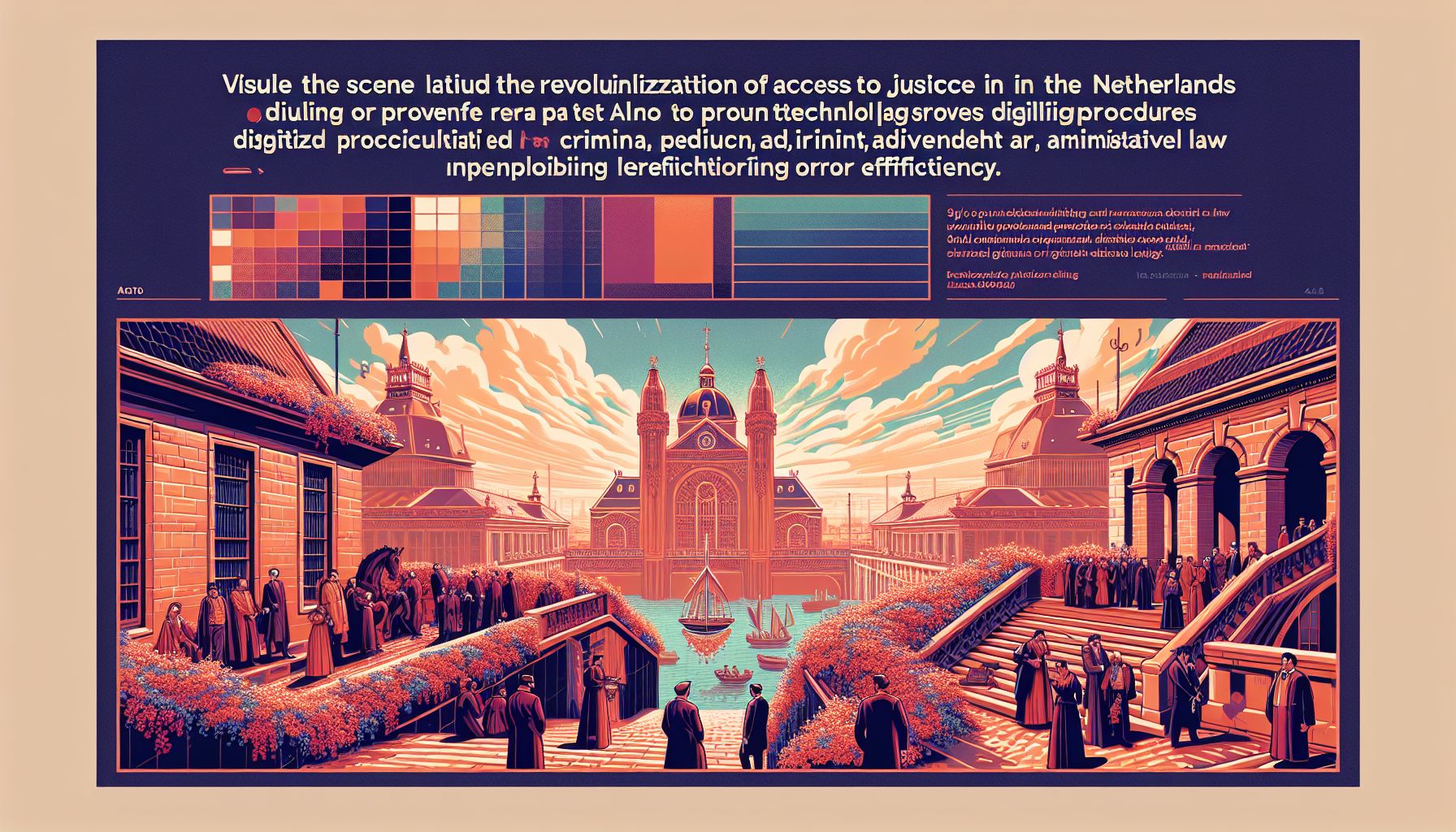Dutch Judiciary Digitizes to Enhance Legal Accessibility

The Hague, Monday, 31 March 2025.
The Dutch judiciary is revolutionizing access to justice through the KEI project, leveraging proven technologies to digitize procedures in criminal, oversight, and administrative law for greater efficiency.
Strategic Digital Implementation
The Dutch judiciary is taking a measured approach to digital transformation, implementing proven technologies in a step-by-step manner to minimize risks. Each new digital component undergoes rigorous testing by judiciary staff, legal professionals, and citizens before wider implementation [1]. This careful methodology ensures that digital procedures are only expanded to all courts after thorough validation by all stakeholders.
Organizational Scale and Leadership
The digital transformation is being managed by IVO Rechtspraak, which currently employs approximately 1,000 full-time staff members, with roughly half dedicated to IT-related functions [2]. The organization is entering a new phase of leadership, with Mr. Harm Broers set to assume the role of CIO Rechtspraak/General Director on July 1, 2025 [2]. IVO Rechtspraak’s systems support daily operations for 12,000 judiciary colleagues across the Netherlands [2].
Modernization and Digital Access
Since 2018, the Council for the Judiciary has shifted its focus from pure automation to enhancing digital accessibility through the Digital Access Project (Project DT) [1]. This initiative aims to enable paperless proceedings in administrative and civil law procedures. The transformation has already shown significant progress in oversight, criminal law, and administrative law sectors [1]. The judiciary’s commitment to modernization is reflected in IVO Rechtspraak’s substantial growth, expanding from 600 to over 1,000 employees in the past five years [2].
Future-Focused Development
The transformation includes the implementation of the IVO Next program, launched on April 1, 2024, which aims to professionalize and streamline operations [2]. The initiative emphasizes agile working methods and multidisciplinary teams, incorporating product owners to enhance integration and chain thinking [2]. A particular focus is being placed on digital resilience and the integration of AI technologies, reflecting the judiciary’s response to rapidly evolving societal expectations for digital services [2].

